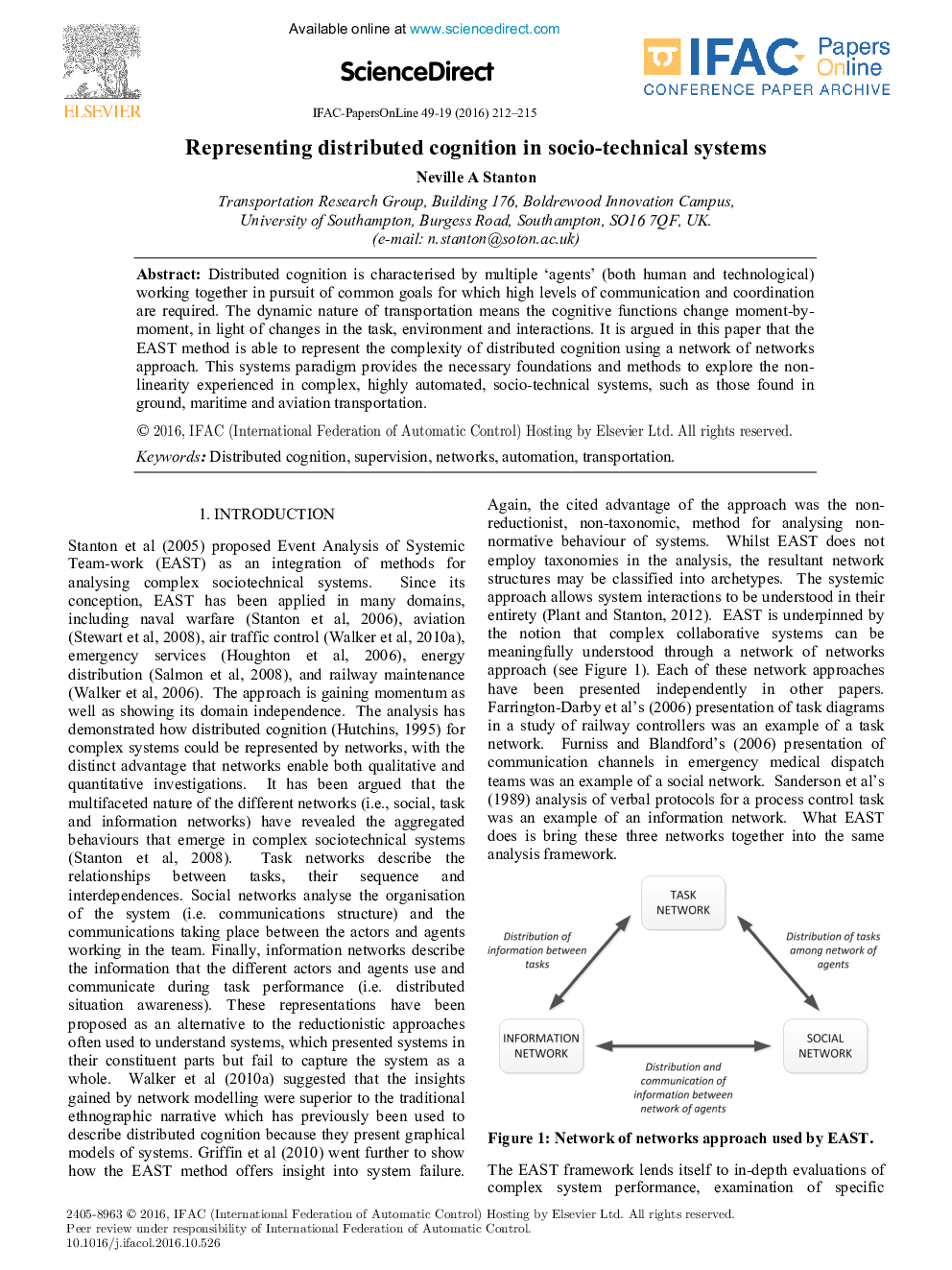| Article ID | Journal | Published Year | Pages | File Type |
|---|---|---|---|---|
| 5002747 | IFAC-PapersOnLine | 2016 | 4 Pages |
Abstract
Distributed cognition is characterised by multiple 'agents' (both human and technological) working together in pursuit of common goals for which high levels of communication and coordination are required. The dynamic nature of transportation means the cognitive functions change moment-by- moment, in light of changes in the task, environment and interactions. It is argued in this paper that the EAST method is able to represent the complexity of distributed cognition using a network of networks approach. This systems paradigm provides the necessary foundations and methods to explore the non- linearity experienced in complex, highly automated, socio-technical systems, such as those found in ground, maritime and aviation transportation.
Related Topics
Physical Sciences and Engineering
Engineering
Computational Mechanics
Authors
Neville A Stanton,
